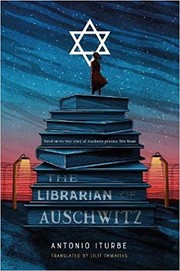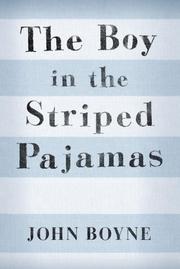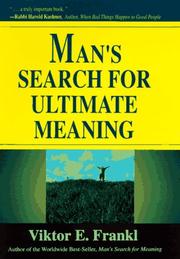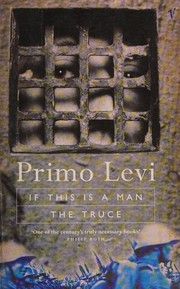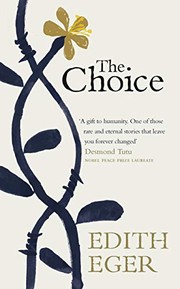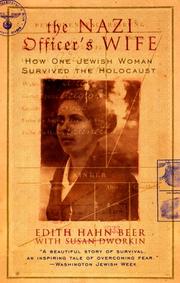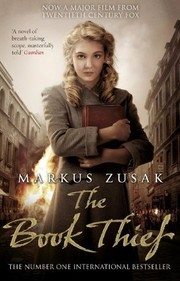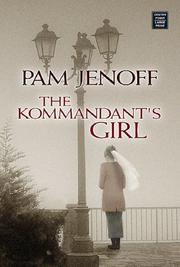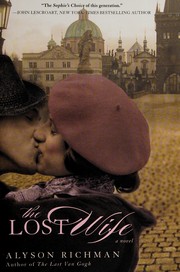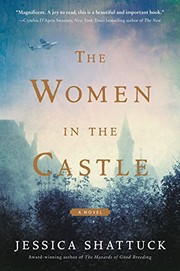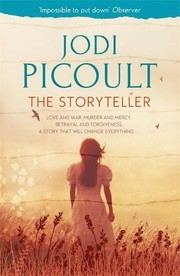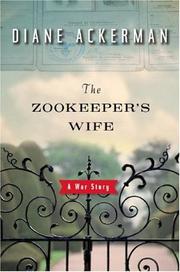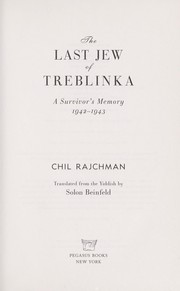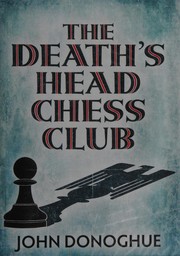Are you looking for powerful and thought-provoking books on concentration camps? Look no further! In this curated list, we’ve gathered the 20 best books that delve into the harrowing experiences of individuals in concentration camps. These books offer a deep and impactful exploration of human resilience, suffering, and survival in the face of unimaginable atrocities. Whether you’re a history enthusiast or simply seeking to gain a deeper understanding of this dark chapter in human history, these concentration camps books are sure to leave a lasting impression.
Contents
- 1 20 Best Books About Concentration Camps
- 2 The Tattooist of Auschwitz
- 3 The Librarian of Auschwitz
- 4 The Boy in the Striped Pyjamas
- 5 Man’s Search for Meaning
- 6 Night
- 7 The Diary of a Young Girl
- 8 If This Is a Man
- 9 The Choice: Embrace the Possible
- 10 The Hiding Place
- 11 The Nazi Officer’s Wife
- 12 The Auschwitz Escape
- 13 The Book Thief
- 14 The Kommandant’s Girl
- 15 The Lost Wife
- 16 The Women in the Castle
- 17 The Storyteller
- 18 The Zookeeper’s Wife
- 19 The Last Jew of Treblinka
- 20 The Choice: A Holocaust Story
- 21 The Death’s Head Chess Club
- 22 Conclusion
- 23
- 24 The 20 Scotland Fiction Books: Best 2024 Update and Review
- 25 Chinese New Year Books: A Curated 2024 Updated List
- 26 Reading List of Merlin And King Arthur Books – 2024 Update
20 Best Books About Concentration Camps
The Tattooist of Auschwitz
by Heather Morris
The Tattooist of Auschwitz by Heather Morris is a gripping historical novel based on the true story of Lale Sokolov, a Slovakian Jew who is sent to the infamous Auschwitz-Birkenau concentration camp during World War II. As the camp’s tattooist, Lale is forced to mark his fellow prisoners with identification numbers, a harrowing task that brings him into contact with the horrors of the camp on a daily basis. Despite the unimaginable circumstances, Lale finds love with another prisoner, Gita, and their story of resilience and hope amidst the atrocities of the concentration camp is both heart-wrenching and inspiring. This compelling book about concentration camps serves as a powerful reminder of the strength of the human spirit in the face of unimaginable adversity.
The Librarian of Auschwitz
by Antonio Iturbe
The Librarian of Auschwitz by Antonio Iturbe is a poignant and gripping book about the horrors of the Holocaust. Set in the infamous Auschwitz concentration camp, it follows the story of a young girl, Dita Kraus, who risks her life to preserve the power of books and knowledge in the midst of unimaginable suffering. This remarkable true story sheds light on the importance of hope, resilience, and the human spirit in the face of unimaginable adversity. Iturbe’s vivid and evocative writing brings to life the harrowing experiences of those who lived through one of the darkest periods in history. The Librarian of Auschwitz is a compelling and heart-wrenching read that will stay with you long after you turn the final page, offering a unique perspective on the resilience of the human spirit in the most dire of circumstances.
The Boy in the Striped Pyjamas
by John Boyne
The Boy in the Striped Pyjamas, a poignant and heart-wrenching novel by John Boyne, is a gripping book about concentration camps. Set during World War II, it follows the story of Bruno, a young German boy whose family moves to a house near a concentration camp where his father is a high-ranking officer. Curious and innocent, Bruno befriends a boy named Shmuel, a Jewish prisoner in the camp, and the two form an unlikely and dangerous friendship. As Bruno’s ignorance about the true nature of the camp becomes increasingly evident, the novel explores the themes of innocence, friendship, and the devastating impact of war. The powerful narrative and the shocking twist at the end make The Boy in the Striped Pyjamas a must-read for anyone looking for a thought-provoking and emotional concentration camps book.
Man’s Search for Meaning
by Viktor E. Frankl
Man’s Search for Meaning is a powerful and thought-provoking book on concentration camps, written by Viktor E. Frankl. The author, a Holocaust survivor, shares his experiences and insights from his time in Nazi concentration camps, offering a unique perspective on human suffering and resilience. Through his personal story, Frankl explores the depths of human suffering and the search for meaning in the face of extreme adversity. This concentration camps book delves into the psychological and existential struggles of those who endured unimaginable horrors, while also emphasizing the importance of finding purpose and meaning in life. Man’s Search for Meaning is a profound and inspiring read that sheds light on the human spirit’s capacity for endurance and the ability to find hope in even the darkest of circumstances.
Night
by Elie Wiesel
Night by Elie Wiesel is a powerful memoir that recounts the author’s experiences as a young boy during the Holocaust. The book vividly describes his harrowing journey through the horrors of the Nazi concentration camps, where he witnessed unimaginable suffering and the dehumanization of his fellow prisoners. Wiesel’s haunting account of his struggle for survival in the face of unspeakable atrocities serves as a poignant reminder of the resilience of the human spirit in the most dire circumstances. This compelling narrative offers a firsthand glimpse into the nightmarish reality of the Holocaust and the profound impact it had on those who endured its horrors. Night is a deeply moving and unforgettable exploration of the human capacity for both cruelty and compassion in the face of unimaginable adversity.
The Diary of a Young Girl
by Anne Frank
The Diary of a Young Girl by Anne Frank is a poignant and powerful account of a young Jewish girl’s experience hiding from the Nazis during World War II. Anne Frank’s diary offers a unique and personal perspective on the horrors of the Holocaust. Through her diary, readers gain insight into the daily struggles, fears, and hopes of the Frank family as they lived in hiding for two years. Anne’s writing is both candid and mature, providing a glimpse into the emotional and psychological impact of living in confinement. This timeless and important book sheds light on the resilience and spirit of those who suffered during this dark period in history. The Diary of a Young Girl is a must-read for anyone seeking to understand the human experience during this tumultuous time.
If This Is a Man
by Primo Levi
If This Is a Man by Primo Levi is a powerful and haunting book about the author’s experiences in a Nazi concentration camp during World War II. This autobiographical work provides a raw and unflinching account of life in the camp, detailing the dehumanizing conditions, the struggle for survival, and the profound psychological impact of the atrocities witnessed. Through Levi’s poignant and vivid prose, readers are confronted with the harsh realities of the Holocaust and the resilience of the human spirit in the face of unimaginable suffering. If This Is a Man is a searing reminder of the atrocities committed in concentration camps and serves as a testament to the strength of the human will to endure in the most dire circumstances.
The Choice: Embrace the Possible
by Edith Eger
The Choice: Embrace the Possible by Edith Eger is a powerful memoir that explores the author’s experiences as a Holocaust survivor. This compelling book delves into Eger’s time in Auschwitz, a harrowing account of the horrors she endured in the concentration camps. Eger’s story is one of resilience, hope, and the power of choice, as she shares how she found the strength to survive and ultimately thrive in the face of unimaginable adversity. Through her journey, Eger offers profound insights into the human spirit, the importance of forgiveness, and the ability to overcome trauma. The Choice is a remarkable testament to the enduring strength of the human soul and a must-read for anyone interested in stories of resilience and triumph over unimaginable adversity.
The Hiding Place
by Corrie ten Boom
The Hiding Place by Corrie ten Boom is a gripping memoir that recounts the author’s experiences during World War II. The book takes readers on a harrowing journey as Corrie and her family risk their lives to hide Jews from the Nazis in their home in the Netherlands. Eventually, they are discovered and sent to a concentration camp for their actions. The book vividly portrays the horrors of the camp and the resilience of the human spirit in the face of unimaginable cruelty. Despite the grim setting, The Hiding Place is ultimately a story of hope, faith, and the power of forgiveness. This powerful account of courage and survival in the face of tyranny is a must-read for anyone interested in the history of World War II or the human experience in times of adversity. It is a truly inspiring book about concentration camps.
The Nazi Officer’s Wife
by Edith H. Beer
The Nazi Officer’s Wife by Edith H. Beer is a gripping memoir that provides a firsthand account of life during the Holocaust. The book chronicles Edith’s remarkable story of survival as she navigates the dangers of living as a Jew in Nazi-occupied Vienna. Edith’s courage and resourcefulness are inspiring as she takes on a new identity and hides in plain sight, ultimately marrying a Nazi officer to ensure her safety. Through her eyes, readers gain insight into the harrowing experiences of those who lived through the atrocities of the Holocaust. This poignant and powerful memoir offers a unique perspective on the resilience of the human spirit in the face of unimaginable adversity. The book is a must-read for anyone interested in learning about the struggles and triumphs of individuals during this dark period in history.
The Auschwitz Escape
by Joel C. Rosenberg
The Auschwitz Escape by Joel C. Rosenberg is a gripping and powerful novel set during the harrowing times of World War II. This book delves into the heart-wrenching reality of the Holocaust, focusing on two men who escape from the notorious Auschwitz concentration camp. As they navigate through the dangerous terrain and face unimaginable challenges, the story unfolds with intense drama and suspense. The author skillfully portrays the brutal conditions within the camp and the indomitable human spirit that strives for freedom and justice. This is a must-read for anyone interested in historical fiction, particularly those fascinated by stories set in concentration camps. The Auschwitz Escape is a poignant and thought-provoking portrayal of the resilience of the human spirit in the face of unimaginable adversity.
The Book Thief
by Markus Zusak
The Book Thief by Markus Zusak is a powerful and moving story set in Nazi Germany during World War II. The novel follows a young girl named Liesel who develops a deep love for books and begins stealing them to share with others during a time of great fear and uncertainty. As Liesel navigates the horrors of war, she forms a special bond with her foster parents and a Jewish fist fighter hiding in their basement. The story is narrated by Death, providing a unique perspective on the events unfolding around Liesel. The novel explores themes of love, loss, and the power of words in the face of adversity. The Book Thief is a captivating and heart-wrenching tale that offers a fresh and poignant look at life during a dark period in history.
The Kommandant’s Girl
by Pam Jenoff
The Kommandant’s Girl by Pam Jenoff is a gripping historical novel set during World War II. The story follows Emma Bau, a young Jewish woman living in Nazi-occupied Poland. When her husband is forced to flee the country, Emma is recruited by the resistance and sent to live with a high-ranking Nazi officer as a spy. As she navigates the dangerous world of espionage and deception, Emma must confront the moral complexities of her situation and the constant threat of discovery. The novel offers a haunting portrayal of life in the midst of war and the harrowing experiences of those living in the shadow of the Holocaust. With its compelling narrative and vivid characters, The Kommandant’s Girl is a must-read for anyone interested in historical fiction set in the midst of the atrocities of the war, a book about concentration camps, and the resilience of the human spirit.
The Lost Wife
by Alyson Richman
The Lost Wife by Alyson Richman is a poignant and gripping novel set against the backdrop of the Holocaust. This heart-wrenching story follows the lives of Lenka and Josef, two lovers torn apart by the horrors of World War II. The novel takes us on a journey through the devastation of the concentration camps, the resilience of the human spirit, and the enduring power of love. Richman’s evocative prose and vivid storytelling bring to life the emotional turmoil and the harrowing experiences of those who suffered in the camps. The Lost Wife is a compelling and unforgettable exploration of love, loss, and the enduring legacy of the Holocaust. This book about concentration camps will leave readers deeply moved and profoundly impacted by the resilience of the human spirit in the face of unimaginable adversity.
The Women in the Castle
by Jessica Shattuck
The Women in the Castle by Jessica Shattuck is a powerful and moving novel set in the aftermath of World War II. The story follows three women, widows of resistance fighters, as they navigate the ruins of a war-torn Germany. The women, brought together by circumstance, form an unlikely bond as they struggle to come to terms with their pasts and rebuild their lives in a world shattered by the devastation of war. The novel delves into the complexities of guilt, survival, and the moral implications of wartime actions. Shattuck’s poignant and evocative writing brings to life the harrowing experiences of those affected by the war, offering a compelling and thought-provoking exploration of the human spirit in the face of unimaginable hardship. This is a must-read for anyone interested in a historical fiction novel set in the aftermath of a war, specifically a book about concentration camps.
The Storyteller
by Jodi Picoult
The Storyteller by Jodi Picoult is a gripping and emotional novel that delves into the haunting history of the Holocaust. This powerful book explores the lives of individuals affected by the atrocities of the Nazi concentration camps, weaving together the stories of a young baker, a survivor of the camps, and a reclusive old man with a dark secret. As the characters’ lives become intertwined, the novel raises thought-provoking questions about guilt, forgiveness, and the complexities of human nature. With its poignant storytelling and richly developed characters, The Storyteller is a compelling and poignant exploration of the impact of the Holocaust on both survivors and the generations that follow. This is a must-read for anyone interested in delving into the emotional and moral complexities of a concentration camps book.
The Zookeeper’s Wife
by Diane Ackerman
The Zookeeper’s Wife by Diane Ackerman is a captivating non-fiction book about the Holocaust and the Warsaw Ghetto during World War II. This poignant and gripping account tells the remarkable true story of Jan and Antonina Zabinski, who used their position at the Warsaw Zoo to save over 300 Jews from the horrors of the Nazi occupation. The book offers a unique perspective on the atrocities of the war, providing a glimpse into the lives of those who risked everything to defy the oppression and cruelty of the Nazi regime. Through vivid storytelling and meticulous research, Ackerman brings to light the incredible bravery and compassion of the Zabinskis, offering a powerful and inspiring narrative that sheds light on the resilience of the human spirit in the face of unimaginable adversity. This is an essential read for anyone interested in the history of the Holocaust and the remarkable acts of heroism that emerged from the darkest depths of human suffering.
The Last Jew of Treblinka
by Chil Rajchman
The Last Jew of Treblinka is a gripping and harrowing book about the author’s experiences in one of the most infamous extermination camps during the Holocaust. Chil Rajchman provides a first-hand account of the atrocities and unimaginable horrors he witnessed and endured in Treblinka. His story is a powerful and heartbreaking reminder of the inhumanity and suffering that took place in the concentration camps during World War II. The book offers a deeply personal and haunting insight into the cruelty and brutality of the Holocaust, serving as a crucial historical record and a testament to the resilience of the human spirit in the face of unimaginable adversity. This profound and moving account is a must-read for anyone seeking to understand the full extent of the horrors of the concentration camps.
The Choice: A Holocaust Story
by Edith Eva Eger
The Choice: A Holocaust Story by Edith Eva Eger is a powerful memoir that delves into the author’s experience as a survivor of the horrors of World War II. Eger shares her story of resilience and the power of choice in the face of unimaginable suffering. This compelling book offers a unique perspective on the human spirit and the capacity for hope, even in the darkest of times. The author’s journey from surviving the Auschwitz concentration camp to finding healing and forgiveness is both heartbreaking and inspiring. Through her personal story, Eger provides profound insights into the resilience of the human spirit and the importance of choosing love over fear. The Choice is a poignant and unforgettable account of one woman’s extraordinary survival and her journey to find meaning and healing in the aftermath of unimaginable trauma.
The Death’s Head Chess Club
by John Donoghue
The Death’s Head Chess Club by John Donoghue is a gripping and powerful novel set in the harrowing backdrop of a concentration camp during World War II. This book immerses readers in the brutal and dehumanizing conditions of the camp, where the protagonist, a prisoner named Gustav, finds solace and a glimmer of hope through the game of chess. The story delves into the complexities of survival, friendship, and the resilience of the human spirit in the face of unimaginable horrors. With vivid and visceral storytelling, Donoghue’s novel sheds light on the strength and determination of those who endured the atrocities of the camp. The Death’s Head Chess Club is a poignant and thought-provoking exploration of the human experience in the darkest of times.
Conclusion
Exploring the 20 best books about Concentration Camps has been a powerful and emotional journey. These books provide a harrowing and essential insight into the atrocities of the past, ensuring that we never forget the resilience and suffering of those who endured such horrors. From personal accounts to historical analyses, these books offer a comprehensive understanding of the impact of concentration camps. They serve as a reminder of the importance of bearing witness and seeking justice. These powerful narratives will continue to educate and inspire readers for generations to come.
Which Concentration Camps book is best?
The best book on Concentration Camps can vary with personal preference, but three widely recommended titles are:
- The Tattooist of Auschwitz by Heather Morris,
- The Librarian of Auschwitz by Antonio Iturbe,
- The Boy in the Striped Pyjamas by John Boyne.
Each offers valuable insights and could be a great starting point.
What are the best books to learn about Concentration Camps?
For those looking to learn about Concentration Camps, there is a wealth of literature that can provide a comprehensive understanding of the subject. Some of the most highly recommended books include:
- The Tattooist of Auschwitz by Heather Morris,
- The Librarian of Auschwitz by Antonio Iturbe,
- The Boy in the Striped Pyjamas by John Boyne,
- Man’s Search for Meaning by Viktor E. Frankl,
- Night by Elie Wiesel,
- The Diary of a Young Girl by Anne Frank,
- If This Is a Man by Primo Levi,
- The Choice: Embrace the Possible by Edith Eger,
- The Hiding Place by Corrie ten Boom,
- The Nazi Officer’s Wife by Edith H. Beer
These books offer a range of perspectives on Concentration Camps, covering various aspects and approaches to the subject.
What are the best books on Concentration Camps?
The best books on Concentration Camps include:
- The Tattooist of Auschwitz by Heather Morris,
- The Librarian of Auschwitz by Antonio Iturbe,
- The Auschwitz Escape by Joel C. Rosenberg,
- The Book Thief by Markus Zusak,
- The Choice: Embrace the Possible by Edith Eger,
- The Diary of a Young Girl by Anne Frank.
Each offers unique insights into the subject. While these books on the topic of Concentration Camps are highly regarded, it’s important to note that any list of ‘best’ books is subjective and reflects a range of opinions.
What are the best Concentration Camps books of all time?
Choosing the best Concentration Camps books of all time can vary depending on who you ask, but seven titles that are often celebrated include
- The Tattooist of Auschwitz by Heather Morris,
- The Librarian of Auschwitz by Antonio Iturbe,
- Night by Elie Wiesel,
- The Choice: Embrace the Possible by Edith Eger,
- The Nazi Officer’s Wife by Edith H. Beer,
- The Book Thief by Markus Zusak,
- and The Auschwitz Escape by Joel C. Rosenberg.
Each of these books has made a significant impact in the field of Concentration Camps and continues to be influential today.


